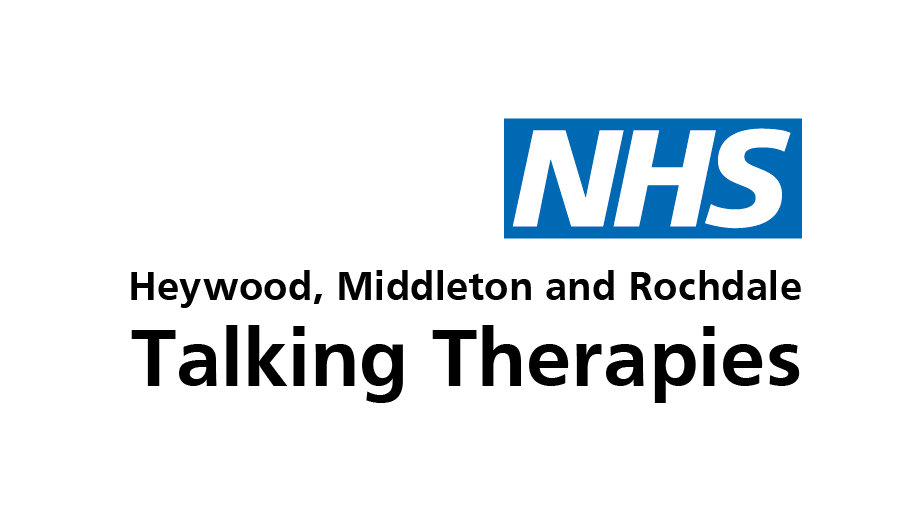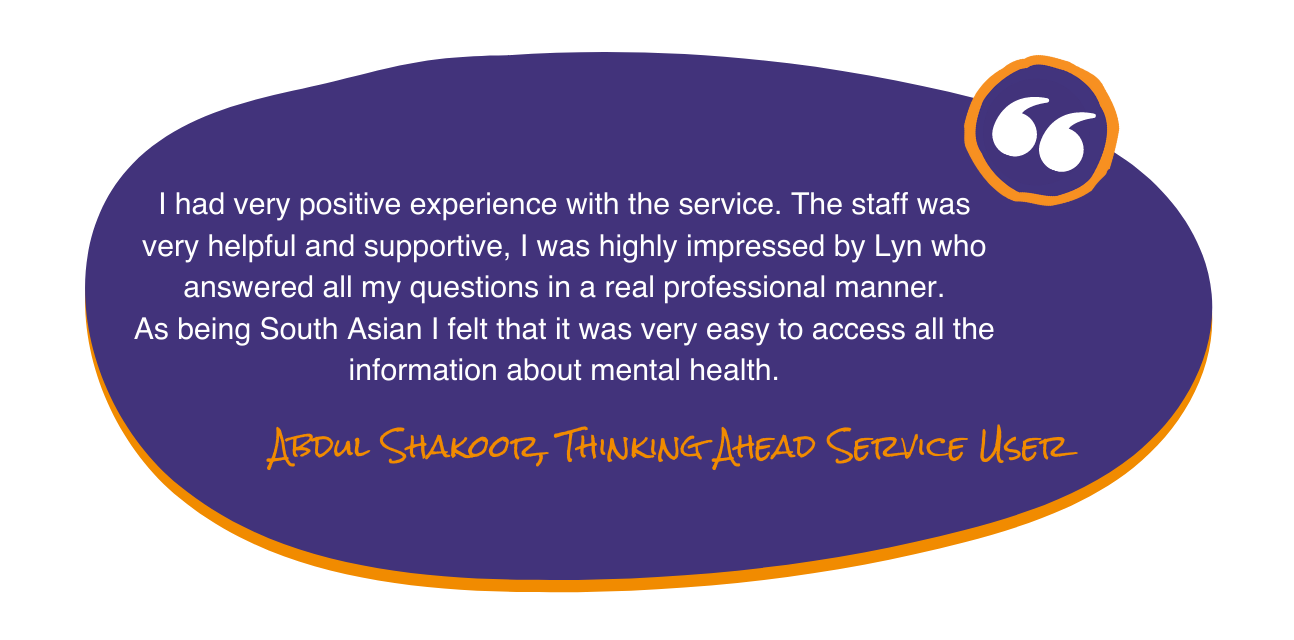All of the therapies we offer are recommended by NICE (National Institute for Health and Clinical Excellence). Our one to one therapies can be offered over the phone, via video call or in person at a community venue.
Guided Self Help
Guided self-help is a brief therapy based on the principles of Cognitive Behavioural Therapy (CBT). It can support people with mild to moderate mental health difficulties, such as low mood, anxiety, and stress. Your sessions may be weekly or fortnightly and you will usually have around 6 sessions with a Psychological Wellbeing Practitioner.
Click here to make a referral.
Cognitive Behaviour Therapy (CBT)
CBT is recommended by NICE for depression and a range of anxiety related difficulties. It can help you to understand how your thoughts, feelings and behaviours may be linked to your problems and can help to identify the changes which could be made to improve your mood. It is a structured, practical talking therapy which focuses on goals and making changes using a variety of evidenced based techniques.
Click here to make a referral.
Counselling
Counselling can help you identify and understand your problems, express your feelings, gain a deeper insight into your issues and develop your own resources to build emotional resilience. You’ll be encouraged to talk about your feelings and emotions with a counsellor who’ll listen and support you without judging or criticising. The counsellor can help you gain a better understanding of your feelings and thought processes, and find your own solutions to problems. But they will not usually give advice or tell you what to do.
Click here to make a referral.
Couples counselling for depression
Counselling for couples helps people suffering from depression by using the relationship as a resource to help support the individual and their partner. It improves the relationship by helping you both to work together on the things that create unhappiness and to move on from a stuck and sometimes hostile patterns of interaction. It helps you to understand each other at an emotional level as well as a practical one. It gives you skills as well as understanding. This can lead to a happier and more fulfilling relationship in which differences between you are not so problematic. This relieves depression which in turn improves your relationship. This positive cycle improves mood and emotional wellbeing.
Click here to make a referral.
EMDR (Eye Movement Desensitisation Reprocessing)
EMDR is used to help people who have post-traumatic stress disorder (PTSD). People who have PTSD may experience intrusive thoughts, memories, nightmares or flashbacks of traumatic events in their past. EMDR helps the brain reprocess memories of the traumatic event which helps reduce symptoms and allows the person to move on from the traumatic experience.
Click here to make a referral.
Peri-natal
We offer a specialist peri-natal service to support parents, carers, adoptive parents, or anyone who is the main carer/carers for an infant from 0-2 years of age. This also includes parents who are pregnant. Referrals can be made for many reasons, including feeling anxious and experiencing low mood.
During the peri-natal period, this may translate into not wanting to be around, or alone with the baby, feeling like you’re getting it wrong, feeling worthless as a parent, feeling like the baby belongs to someone else, feeling the baby will only settle for other people, not being able to stop thinking about the birth, or if pregnant, feeling terrified of the birth.
Home visits are undertaken by our specialist in peri-natal and infant mental health, where much of the support is done within the parents’ home, or in children’s centres.
Click here to make a referral.

